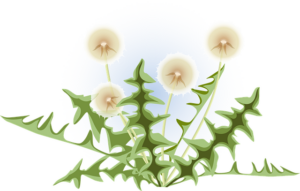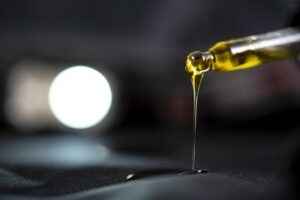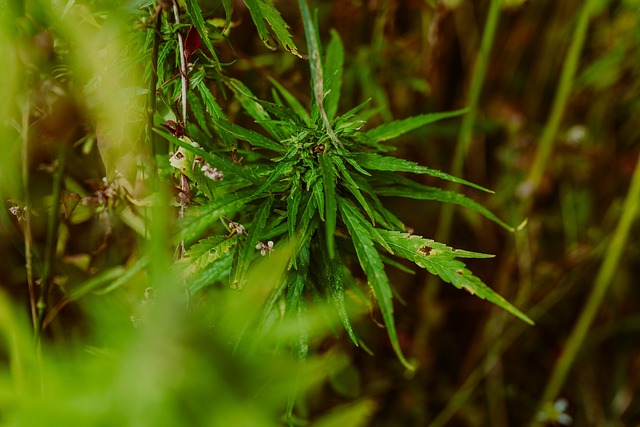
2023 has seen an increased interest in THCA (Tetrahydrocannabinolic Acid), a non-psychoactive cannabinoid present in raw hemp flowers. As of the latest EU regulations, many countries within the European Union allow the possession, sale, and cultivation of THCA flower for both medical and recreational purposes under specific conditions that ensure compliance with legal limits set at 0.2% THC content on a dried weight basis. THCA is generally legal in these EU countries, and its legal status is subject to ongoing changes as regulations evolve. THCA can be consumed through various methods such as smoking or vaporizing for immediate psychoactive effects, or by incorporating the flowers into edibles, topicals, or tinctures for longer-lasting or localized relief. Always adhere to local laws and seek guidance from a healthcare professional before use, especially if you have health concerns or are taking other medications. Compliance with these regulations is crucial to ensure a safe and legal experience with THCA products in the EU.
Exploring the emergence of THCA flower within the European Union’s burgeoning cannabinoid market, this article provides a detailed examination of its legality, sourcing, and potential uses. From understanding what THCA is to navigating EU regulations, we delve into the transformative decarboxylation process that activates its effects. This comprehensive guide elucidates how to safely access high-quality THCA flowers across various EU countries and offers insights into consumption methods and dosage for those interested in exploring this natural compound’s medicinal and recreational benefits.
- Understanding THCA Flower: The Natural Cannabinoid Gaining Momentum in EU Markets
- THCA Legal Status Across Different EU Countries: A Comprehensive Overview
- Sourcing High-Quality THCA Flowers Legally in the European Union
- The Medicinal and Recreational Potential of THCA Flower in EU Regulations
- Decarboxylation Processes: Transforming THCA into THC and Its Implications for Users
- Consumption Methods and Dosage Guidelines for THCA Flowers in EU Countries
Understanding THCA Flower: The Natural Cannabinoid Gaining Momentum in EU Markets
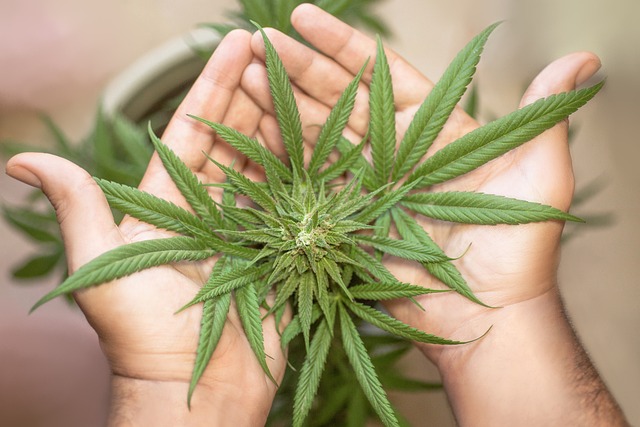
The interest in THCA (Tetrahydrocannabinolic Acid), a natural cannabinoid found in hemp and cannabis plants, has been on the rise within the European Union markets. Unlike its more famous counterpart THC (Tetrahydrocannabinol), THCA is non-psychoactive, which has sparked a growing curiosity among consumers looking for the potential wellness benefits of cannabinoids without the psychotropic effects. The legal landscape in EU countries regarding THCA flower has become clarified, with many member states permitting the sale and use of products derived from hemp that contain less than 0.2% THC. This regulatory framework has opened doors for businesses to offer a range of THCA-rich products, including flowers, extracts, and oils, catering to a health-conscious demographic eager to explore alternative wellness solutions.
The EU’s approach to regulating THCA flower is rooted in the 2017 EU Novel Food Regulation, which legally recognizes hemp-derived products containing cannabinoids like THCA. This regulatory milestone has been instrumental in establishing a clear path for companies to navigate and market their products within the bloc. As awareness of THCA’s potential benefits grows, so does its demand across various EU countries. Consumers are increasingly turning towards THCA flower as a natural alternative for its purported therapeutic properties, including anti-inflammatory and neuroprotective effects, without the mind-altering side effects associated with THC. This shift reflects a broader trend in the wellness industry, where consumers prioritize health benefits alongside legal compliance, driving the momentum behind THCA flower’s presence in EU markets.
THCA Legal Status Across Different EU Countries: A Comprehensive Overview

The legal status of THCA (Tetrahydrocannabinolic Acid), a non-psychoactive cannabinoid found in the cannabis plant, varies across different European Union (EU) countries. In some EU member states, THCA is fully legal and can be sold as an ingredient or finished product, subject to compliance with national regulations on novel foods, food supplements, or cosmetics. For instance, countries like Austria, Germany, Italy, and the Netherlands have established clear frameworks for the use of THCA in various products, recognizing its potential benefits without the psychoactive effects associated with THC (Tetrahydrocannabinol). In contrast, other EU nations maintain stricter stances, positioning THCA within the scope of their narcotics laws, which can lead to legal complications if not carefully navigated. It’s crucial for businesses and consumers alike to stay updated on the evolving legal landscape as interpretations and applications of EU law differ from one country to another. The varying regulations reflect the complex nature of cannabis legislation within the EU, where factors such as product formulation, intended use, and THC concentration play pivotal roles in determining the legality of products containing THCA. Navigating these differences is essential for any entity involved in the production or sale of THCA-containing products, highlighting the importance of thorough legal counsel and due diligence to ensure compliance with each country’s specific laws and regulations.
Sourcing High-Quality THCA Flowers Legally in the European Union
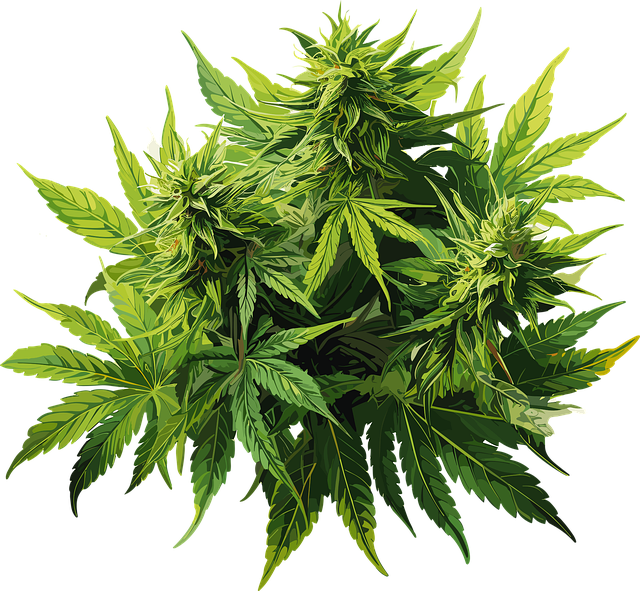
Navigating the legal landscape for THCA flowers in the European Union can be a nuanced process, as regulations vary by country. Prospective buyers interested in sourcing high-quality THCA flowers legally must first understand the specific laws of each member state, as they differ significantly. In countries like Germany, Italy, and Malta, THC (tetrahydrocannabinol) and its derivatives are legal for medical and scientific purposes, which includes THCA, provided they comply with the stringent regulations set forth by the EU’s Novel Food Regulation and national legislation. It is imperative to engage with licensed producers or specialized suppliers who can legally export these products within the bloc. These entities often have certifications that attest to their compliance with local and EU-wide regulations, ensuring a legal and safe transaction. Additionally, staying informed about the evolving legal framework regarding hemp derivatives in the EU is crucial for consumers and businesses alike. As laws are subject to change and may vary from one jurisdiction to another, due diligence is key when sourcing THCA flowers. By adhering to legal avenues and engaging with reputable suppliers, individuals can responsibly enjoy THCA products in compliance with EU regulations.
The Medicinal and Recreational Potential of THCA Flower in EU Regulations
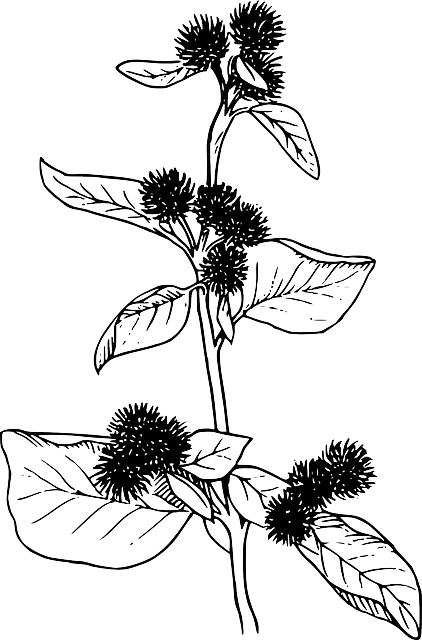
THCA, or tetrahydrocannabinolic acid, is a cannabinoid found abundantly in raw cannabis flowers and is considered the precursor to THC, the psychoactive component well-known for its recreational and medicinal properties. As EU regulations evolve, THCA flower has garnered significant attention due to its potential benefits. Unlike THC, THCA is non-psychoactive, making it an attractive option for those seeking the therapeutic effects of cannabis without the high associated with its psychoactive counterpart. Medicinally, THCA has been studied for its anti-inflammatory, neuroprotective, and potential antiemetic properties, offering hope for conditions ranging from chronic pain to neurodegenerative disorders.
The recreational appeal of THCA flower lies in its ability to provide a clear-headed high when decarboxylated—a process that converts THCA into THC through heating. This has led to a growing interest among EU citizens, particularly where local regulations permit the use and cultivation of cannabis for such purposes. As of my knowledge cutoff in 2023, several EU countries have legalized the possession, sale, and cultivation of THCA flower for both medicinal and recreational use, provided they adhere to strict guidelines set forth by each nation’s health and drug policies. These regulations aim to balance the potential therapeutic and psychoactive benefits with public safety and health considerations, reflecting a nuanced approach to cannabis policy within the European Union.
Decarboxylation Processes: Transforming THCA into THC and Its Implications for Users
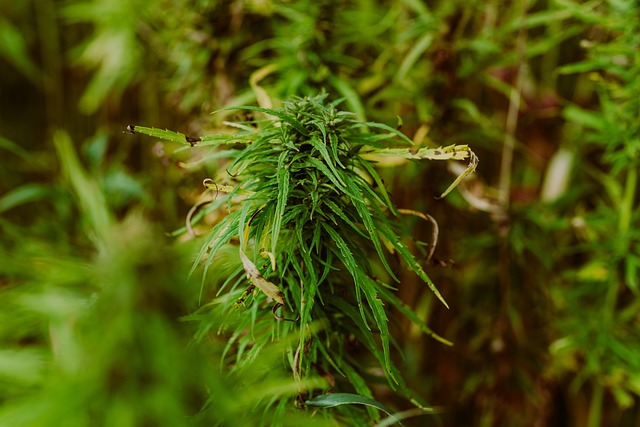
THCA, or Tetrahydrocannabinolic Acid, is the non-psychoactive precursor to THC, the primary psychoactive component found in cannabis. The transformation of THCA into THC, a process known as decarboxylation, is crucial for the plant’s effects to be felt by users. This chemical reaction occurs when heat is applied to the plant material, effectively removing a carboxyl group from the THCA molecule and activating its psychoactive properties. Decarboxylation can happen naturally through the curing process or intentionally by users through various methods such as vaporizing, smoking, or cooking at specific temperatures.
In the context of legality, THCA itself is generally considered legal in many EU countries under the conditions set forth by the European Industrial Hemp Association, provided it contains less than 0.2% THC on a dried weight basis. This distinction is significant for consumers and producers alike, as it allows for the legal manipulation of cannabis products within regulatory frameworks. For users seeking the psychoactive effects of THC, understanding the decarboxylation process is essential to ensure that their cannabis-infused products are properly activated. Properly decarboxylated THC products provide a consistent and predictable experience, which is vital for both medical and recreational use within legally compliant parameters. Users should always be aware of the local laws and regulations governing the possession and consumption of cannabis and its derivatives to ensure compliance with these legal boundaries.
Consumption Methods and Dosage Guidelines for THCA Flowers in EU Countries
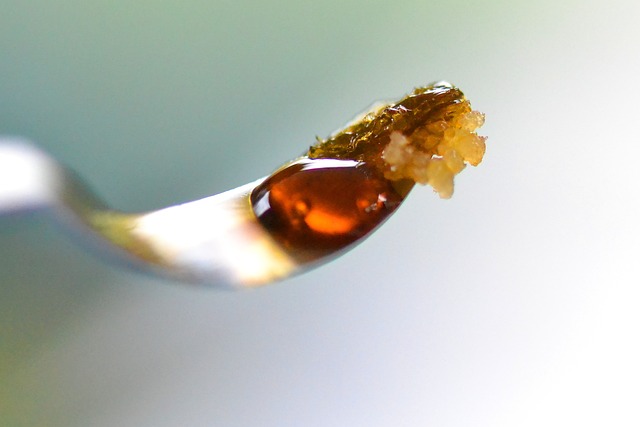
THCA flowers, rich in their cannabinoid content, offer a range of consumption methods for those in EU countries where THCA is legal. These methods cater to diverse preferences and ensure that users can harness the potential wellness benefits of THCA effectively. One of the most common consumption routes is through smoking or vaporizing the flowers. This method allows for immediate effects as the THCA is converted to THC upon heating, providing a psychoactive experience. For those seeking a non-inhalant option, THCA flowers can be infused into edibles, such as teas or oils, which are then consumed orally. The onset of effects from ingested THCA is slower due to the digestion process, but the duration of the effects can be longer. Additionally, the flowers can be used to create topicals and tinctures, offering localized relief for certain ailments or allowing for precise dosing through sublingual administration, respectively.
When it comes to dosage guidelines, it’s crucial for users to start low and go slow. This approach helps in understanding how one’s body reacts to THCA. The recommended starting dose for beginners is typically around 1-2 milligrams of THC per 10 pounds of body weight, as a guideline for those converting from THC to THCA, given the similar effects once decarboxylated. Experienced users may choose to consume higher amounts based on their tolerance and desired effect. It’s important to note individual sensitivity varies, and factors such as body composition, metabolism, and the specific strain of THCA flower can influence the experience. Always consult with a healthcare professional before incorporating THCA flowers into your wellness routine, especially if you have underlying health conditions or are taking other medications. Adhering to local regulations and dosage guidelines ensures a safe and enjoyable experience with THCA flowers in EU countries where they are legal.
Navigating the evolving landscape of cannabinoids, THCA flower has emerged as a significant player within the European Union’s wellness and recreational markets. This article has shed light on the nuanced legal status of THCA across various EU nations, offering a clear overview for consumers and businesses alike. As the demand for high-quality THCA flowers continues to rise, discerning legal sourcing options within the EU becomes increasingly important. Furthermore, understanding the medicinal and recreational potential of THCA, alongside EU regulations, empowers users to make informed choices about their consumption. The decarboxylation process that transforms THCA into THC is another key aspect that users must consider for optimal effects. In conclusion, THCA’s legal status in EU countries represents a dynamic area within the broader cannabis conversation, underscoring the need for ongoing education and responsible usage as this natural cannabinoid continues to gain momentum.
